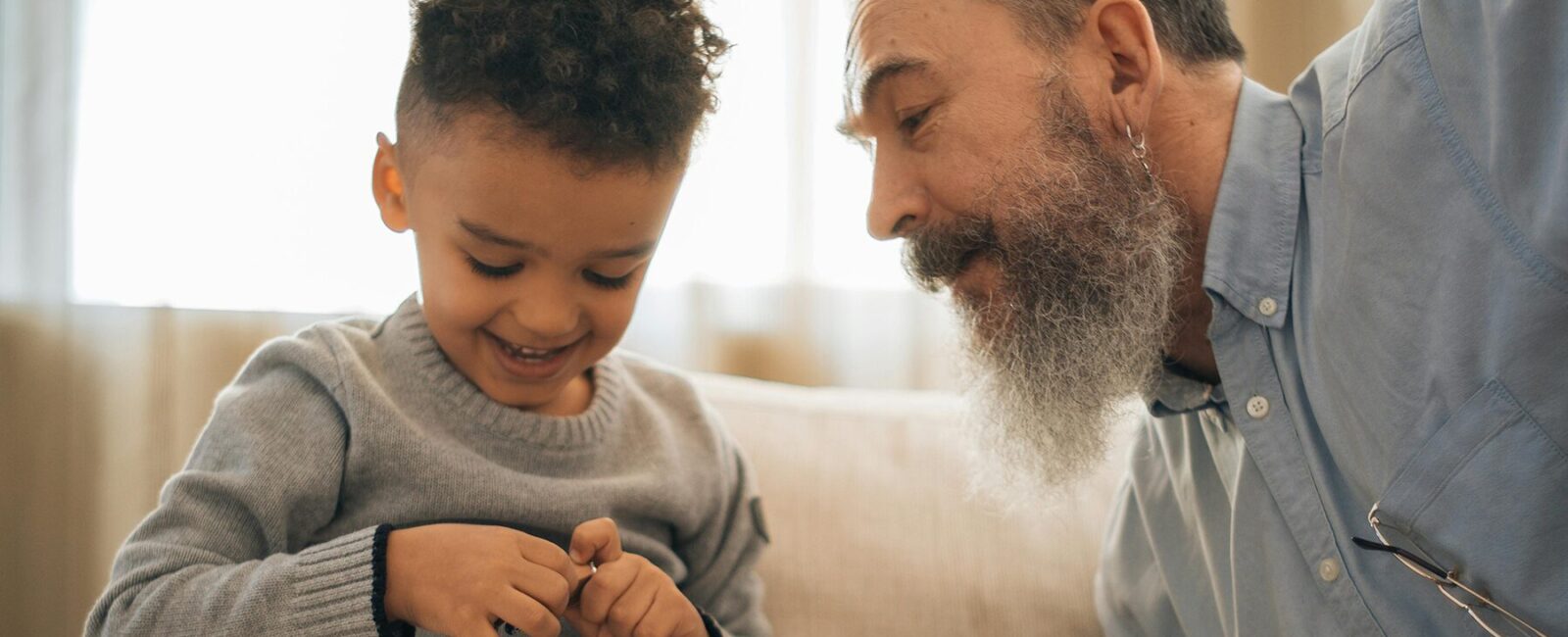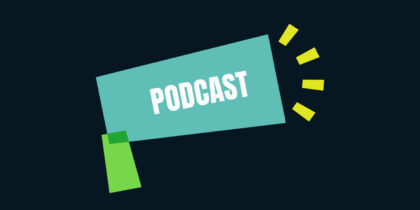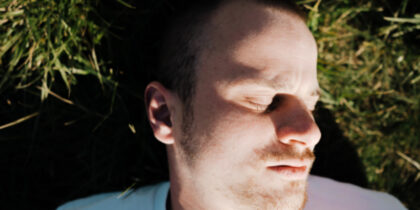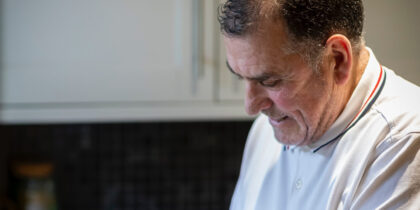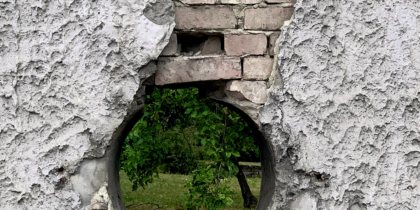18 April 2024
By Andrew K Kauffmann @JKaye82
‘What makes someone a good Dad?’ is a question I’ve been posing often these past weeks. In moments of grateful reflection, I remember Dad tapping the dashboard one August evening. As we drove home from Southend-on-Sea, we hummed along to Abba’s Fernando on the car’s cassette player. He seemed happy, back then. I remember the moment more than thirty years on, because the childhood bliss I felt fuels me today. I channel this memory when I resolve that no matter how tough things get, I need to be there for Dad now.
The other week we had one of our worst arguments. I blame myself. I blame him (and his disease). Hurt, he said that it seemed I had forgotten all the good things he’d done for me, and how good a father he was when I was just a kid. He was right. He was a good father.
A few days ago I felt a charge of energy as I played with our son at home. In my thighs and in my back, I felt the impulse to dance. I played Abba’s ‘Take A Chance Me’.
If you need me, let me know, gonna be around…
Gonna do my very best and it ain’t no lie
As I danced around his play pen, our son’s eyes darted from left to right. I soon caught my reflection in the living room mirror, and thought about Dad. I flit between frenetic moments like this, egging on our son, jumping up and down like a pantomime entertainer, and moments where instead I tighten or withdraw, my mind diverted. There are the times I feel present, and the occasions I feel trapped.
I am not in a crisis, but since I became a parent, I don’t feel my mental health is where I want it to be. I wanted to enjoy this period as a new parent more than I currently do, unperturbed by news of disease and illness, untroubled by a need to prove myself as a caring, attentive son. This isn’t Dad’s fault, dependent and vulnerable as he is, newly diagnosed with Alzheimer’s.
Lay All Your Love On Me
I feel a kind of fear. When I don’t have you near
Our one year old son is discovering that life is littered with obstacles. For every new game he learns, he’s beginning to be confronted by rules. For every step he takes, hurdles lie in wait now that he’s attempting to walk.
Yes, go on. But don’t keep poking your fingers in the plug sockets in the wall.
These are the kinds of things I say — multiple times a day. Education is repetition, so I’m reminding him of life’s limitations, and lecturing him about them, at least on an hourly basis.
You can’t place coins in your mouth.
You can’t, you just can’t.
Sooner or later, he’ll realise sofas can’t be catapulted from – not wisely – and that he has to duck if he wants to avoid hitting his head on the edge of our dining table. He might come to conclude that the harder edges of day-to-day life make you more resilient, or to view this as nonsense. We’ve all heard the same sentiment. ‘Whatever doesn’t kill you simply makes you stronger’.
From my recent vantage point, a Dad of an infant caring for a frail parent who is facing considerable debt, I find myself agreeing with another platitude. ‘Life only gets harder as you get older.’ Approaching something like middle age, I’d also add: I’m not always convinced we can adapt to that. At least, I’m not sure we can weather life’s inevitable storms without adequate help and support.
Compared with previous generations, more of us seem to be living at a geographic or emotional distance from our relatives. As longevity increases, and (generally speaking) fertility falls, more of us are living in so-called ‘beanpole families’. That means per generation, there are fewer children and grandchildren. Meanwhile, octogenarian and nonagenarian elders experience increasingly complex care and support needs. A middle cohort of stressed-out adult sons and daughters (oftentimes they’re also parents) feel sandwiched and pressured as they try to hold everything together. Their care responsibilities or obligations to older relatives don’t cease. For many, the life stage when these care responsibilities appear to intensify is in their forties or fifties, and even in their sixties. Some caregivers have been characterised as the ‘club sandwich’ generation as they take care of ageing parents, but their adult children too, who struggle to become independent. As one caregiver describes it, there is a psychological toll:
“Everything’s different. Like you’re always ‘on’, and you can’t be who you want to be anymore.”
The demographic shift I feel most keenly is the one which sees adult children taking on roles as caregivers at earlier ages, for parents with dementia and other health conditions. (I live far away from my sisters, and whilst we are all doing our very best, we find it tough to do what we need to for our father when we’re this dispersed). If it ‘takes a village to raise a child’ (to draw on yet another cliché), I’d contend it takes a town to support both a child and an ageing parent or grandparent. I’d say it takes a city to do all this and hold down a job, pay the rent or mortgage, keep your friends, and have something left of a day to unwind and practice self-care. I know one of the impacts of feeling sandwiched is to experience a mix of difficult emotions. I’ve read how others respond to the “grief” of realising one’s parents are vulnerable. There’s a desire to escape one’s responsibilities, and, if I reflect on it enough, a sense of loss. When I see Dad struggling to complete a sentence, or forgetting my son’s name, I can’t escape what we all hate to think about. Our inevitable decline. Our mortality, damn it.
Whatever one’s individual circumstances or family set-up,many of us feel 21st century life is a juggling act. We strive to meet a mix of family, professional and other social obligations. The problem, though, is that the support we need to feel secure, or to remain balanced as we do this, feels scarce.
Slipping through my fingers
…There’s that odd melancholy feeling. And a sense of guilt I can’t deny
I’ve endured tougher periods in my life than the one I’m currently experiencing. My OCD has been a hell of a lot worse than it is this spring. I’m objectively doing ‘well’. Our son wears a toothy grin on his face. When he reaches out to cuddle me or calls me ‘Da-da’, I feel joy. I love seeing him in his element on the climbing frame, the slide and on the playground swings.
In my prouder moments, I hold my head up higher knowing I’ve fought for Dad. I’ve secured him a new social care assessment, having complained that the first one was lacking. I have managed to get some of his debts waived. I have been on a family holiday. Inside, though, I felt strangely jaded. I walked the streets of a faraway city, wondering why on earth I was there, and how Dad would react if he knew I’d travelled so far. I’ve come to realise how cut off at times I am from my own needs and emotions. I’ve even been wondering (tongue-only-slightly-in-cheek) whether I’m in the early throes of a mid-life crisis.
I feel guilty, as I always feel guilty, that I am not doing enough for my Dad, who lives 784 miles away in London. When I do help him, it never seems to be enough. There’s always a new battle to fight, be it with one of his utilities providers, or someone chasing arrears. Fighting for him to secure a health or care appointment leaves me feeling frustrated, if not defeated. Then there’s the shame in thinking about how distant I can be with my baby son. Too often, I scroll through my phone to while away the hours. There have been the occasions I’ve sighed and complained that my daily routine consists of changing nappies and picking up morsels of chewed food from the kitchen floor.
What confounds me, day to day, aren’t the physical blocks that prevent our son from stepping this way or that around the living room table, but the mental stumbling blocks of feeling poorly resourced and emotionally ill-equipped to deal with my different caring responsibilities. If I’m ever in the mood to say, ‘Andrew, be resilient’ or ‘what doesn’t kill you…’ — attempting to be a Dad in control, say — I might repeat another banality. ‘All things must pass.’ I could sing these words as if I were singing another Abba song. They’re forever acclaiming life as positive.
For now, though, I feel stuck. I feel sandwiched between a son and a father who need me, physically, emotionally, and in my Dad’s case, financially. I feel what they need – what they deserve – strips my stores of my mental energy. Late each night, all I want is deep sleep. I don’t think my son is asking for too much. How could he? He’s a baby. But after spending what feels like a long time attempting to feed him, and then listening to Dad’s pained voicemails, I sometimes don’t want to eat dinner. Another extreme sees me gorging on my son’s leftover mush and following a poor diet.
I know I’m not alone in feeling these conflicts and pressures. I’m not alone in feeling that my mental health is brittle. I’m not alone in feeling time is slipping, but I already have enough on my plate. We’re all trying to do – and be – too much.
Money, Money, Money
I work all night, I work all day, to pay the bills I have to pay. Ain’t it sad?
Irrespective of whether we have kids, are trying to become parents, or find ourselves struggling to cope with a loved one’s illness, we often hear that many of us are experiencing ‘burnout’. It’s usually associated with physical and emotional exhaustion experienced through work, but in general, it’s a sense that we feel depleted and overwhelmed, no longer quite able to function as we used to, or would wish. Mental Health UK’s report on burnout recently revealed that just over a third of adults in the past year experienced either constant or frequent ‘burnout’. It would be helpful to see how, if at all, these statistics change over time. For now, it’s a stark picture.
There’s another problem, at least in ‘Western’ societies. Quite apart from the question of our kinship ties, and the strain we might experience supporting our families, too many of us feel a pressure to be Super Troupers. Culturally, we’ve created an imperative that to be busy, to rush around, to constantly be in demand, is to somehow feel successful; that to be ‘on the go’ is to live the ‘good life’. We’re living in unhealthy times. Whether it’s at work, or in our personal lives, more of us seem to feel drained and – possibly worse – helpless to do anything about feeling that way. We’re working longer hours, not less. When it’s time for rest, what we turn to doesn’t quite replenish us. The 2020s feel like the decade we always feel we have to be “switched on”. I’m not quite sure we’ve collectively woken up to what that means for our mental health. I feel I’m only just waking up to what it means for my mental health.
This April has been Stress Awareness Month. In the past, stress has been trivialised, but research continues to highlight its toxic impact, be it home or at work. Newer pressures related to the cost of living, our environment, and how we lead our daily lives, submerged as we are by an information overload, all have an influence on how stressed we feel. Deloitte’s recent Trends report highlights how just over half of people they surveyed ranked “Increasing work stress is leading to worse mental health” as the main development they felt concerned about with regards to their work. This is affecting younger entrants to the job market, just as much as it’s affecting middle-aged cohorts. In Deloitte’s Global Millennial and Gen Z Survey, 48% of workers admitted they are “burned out at work.” Nearly half of millennial and Gen Z workers report feeling stressed all or most of the time.
Wherever one looks, since the pandemic at least, employees are typically reporting worsening wellbeing. Some even refer to a “productivity paranoia”, which affects people trying to juggle personal obligations with their professional responsibilities, worrying that in doing so, they can’t unplug from their work. Instead of seeking to understand the root causes of an increase in mental illness, UK government ministers are insulting people with mental ill health, arguing in newspapers that “mental health culture” has “gone too far”. The solution isn’t to be found in politicians pandering to prejudice about mental illness, arguing as Mel Stride MP has that “the normal anxieties of life” are increasingly being labelled as an illness. As the Stress Management Society says, today’s fast-paced world, plus the “constant barrage of information” leaves many of us feeling overwhelmed.
Knowing Me, Knowing You
In these old familiar rooms, children would play
The things that would help me divert myself from a sense of burnout – for example, running, writing or trying to paint – don’t fit naturally into my schedule. I find myself either on the phone to my Dad or one of the many organisations I need to speak to on his behalf, or my son is tugging at my trouser leg, crying because my attention is diverted.
I want to be a good Dad, but sometimes I worry I don’t have the necessary selflessness or patience. In moments where I’m kinder to myself, I acknowledge I’m just one of many millions who feel sandwiched between caring for a child and an ailing parent, and if at times I feel I’m failing, I’m hardly alone in feeling that way.
I’ve felt occasional stabs of pressure in my abdomen, and also in my lungs and in my throat. My blood pressure has risen when I’ve dressed our son for the day, or undressed him and put him into his PJ’s. I’ve found my heart racing. ‘I’m not getting this right, am I?’ I’ve cursed myself. ‘Why is he so upset?’ When the lights go down, how easy the decision would be to pour more red wine into my glass. If I probe a little deeper, I’ve been cursing my lack of productivity, failing to enjoy the chaos and the lightness of raising an infant.
Perhaps I need to repeat mantras or affirmations? It’s time I stand up, be a man, take control, develop a thick skin, take things into my own hands. I’m not so sure. To manage in this formative phase for my son, bringing him up as he begins to attend nursery, I feel what I need most is to admit how vulnerable I feel. Not to repeat soulless incantations, but to reach out for more support, and at the very least, talk more with my partner, sisters and friends. To feel there’s no shame in doing so. Dad is declining fast. I’m struggling with self-esteem. Why is writing this essay the first time I’ve been able to express any of this? Shouldn’t I be speaking to a psychotherapist?
Super Trouper
Super Trouper beams are gonna blind me. But I won’t feel blue
In harsher moments of self-reflection, I hear my voice and hate what I regard as self-pity. I’ve always understood one of the best methods of getting out of my own head is to care about what’s happening for others, and to understand my own pressures in perspective. These past weeks I’ve been thinking about people who cancel their desires; people who earnestly, forever, work hard at pleasing others.
Society is set up in such a way that particular parts of the population suffer the greatest burden of having to be Super Troupers: those trapped between demands pulling them in one direction, and then in another, possibly longing to walk on different terrain. I am thinking here of carers and caregivers. I am principally thinking of women. And because so much of my focus is on parenting, I am especially thinking of mothers.
Marianne Levy’s Don’t Forget To Scream: Unspoken Truths About Motherhood argues that so high are society’s expectations of mothers, ‘and so uncompromising, that to speak of anything beyond milky bliss can feel akin to relinquishing one’s motherhood altogether.’ This resonates for me, as a father. I too feel a sort of remorse in publicly admitting difficult emotions about fatherhood, as if writing about the subject is an admission of insufficiency.
Levy continues: ‘…if communication does take place…we retreat into familiar aphorisms and bleak jokes…into acceptable mummy tropes like the need for wine and the uselessness of men. We couch our words carefully, guardedly. “I know I’m lucky, but…” and, “I wouldn’t change a thing, but…”’
The other day I said this (about our son) to my partner: ‘Bless him, of course we love him, but he’s such a character…’ Not only was my partner (rightly) tiring of me saying this. It must have been the third or fourth such instance I’d uttered this kind of thing. I guess he also knew that couched in this odd statement was the weariness I sometimes feel with day-to-day parenting. I wasn’t just saying our son was a ‘character’, I was voicing that parenting takes a physical and emotional toll.
When it comes to the question of caregiving and who is at the greatest risk of experiencing mental ill health, I am reminded of Marina Benjamin’s recent book, A Little Give: The unsung, unseen, undone work of women. Benjamin writes ‘Sometimes I think that carrying — other people, the continuity of history, generational identity, the emotional load of the everyday — is the main thing that women do.’ Nearly 3 in 5 carers (59%) are women, and women are more likely to become carers and to provide more hours of unpaid care than men. What’s more, more women than men provide high intensity care at ages when they would expect to be in paid work. This work – and it is work – is unsung, and what’s more, it can reap consequences for physical and mental health.
45% of lesbian, gay and bisexual carers often or always feel lonely, compared with 33% of heterosexual carers, according to research from Carers UK. I am gay, but I’m not sure that explains why I feel isolated on my long calls with Dad. Depending on how bold I feel, I might protest that he must stop driving, but I get tongue-tied, or else I find myself saying altogether the wrong thing. Loneliness for me is the feeling there’s no one to vent to after these calls: to worry that by venting I would be admitting I can’t handle day-to-day stress. To keep a rictus smile on my face, when I want more people local to me I can gossip with, and confide in about the many ups (but also the inevitable challenges) of parenting.
I have been taking solace in emerging literature around fatherhood that feels braver and more honest than books I’ve read in the past. I especially enjoyed Caleb Klaces’s experimental work of verse and prose, Fatherhood. I connect with the ways in which he admits parenting contains extreme contradictions. He experiences dissociation and moments of panic: “The baby was all that I could see and was impossible to look at”.
Perhaps he is a highly sensitive parent? Perhaps it’s perfectly healthy to talk in these confessional terms. Perhaps the antidote to mental ill health as a parent, or in any capacity, is to talk in shades of light and grey, in terms of joy, yes, and the inevitable burnout we feel as life grinds us down.
S.O.S.
So, when you’re near me, darling, can’t you hear me? S.O.S.
In recent weeks, I have taken to cleaning. It’s spring, but I wouldn’t say I’m engaged in casual spring cleaning. When I clean, I am full of anger. My mind floods with the images of things left undone, or my Levis jeans stained with baby purée, never again primed to look the same shade of sky blue. I think about the tasks I have to attend to that day, speaking to a lawyer whose client threatens Dad with county court action. Who must I appease and apologise to? I have never quite experienced the degree of release or peace, the rush of adrenaline and superiority that cleaning now creates within.
One recent Saturday afternoon, in my frenzied state of cleaning the apartment, I was half having a phone conversation with Dad. Experiencing a sense of claustrophobia with the conversation’s circularity, I repeatedly drew breath as he one moment conceded it would be wrong not to pay his car insurer, and the next, dismissed their chasers for payment. I was on my knees trying to scoop out water from our seemingly broken dishwasher. I was so un-centred that at the end of our hour-long conversation, I took a large swig of what I thought was a glass of water, only to realise I’d swallowed a glass of Fairy washing up liquid. As soon as I’d put the phone down, I cursed, shaking my hands.
Give me a break, G-d
As I showered later that afternoon, I scrubbed myself as if stained by the day’s excess of duty. What had I to show for this day other than another inconclusive phone call with Dad, no decisions made about his future accommodation? Or getting him to quit driving? Just a few dishes washed up, soaking on our sideboard! I raged, slamming down pans and saucers. Again, I’m reminded of Marina Benjamin’s book, and the opening scene when she’s cleaning her aunt’s floor.
‘I see myself from the outside and I think: this is madness, this crazed cleaning of an already-clean floor… I think that a middle-aged woman on her knees in the kitchen has lost the plot, or lost herself, or is lost in a task of such meaninglessness that it must offer some meditative balm…’
I’m reminded of the myriad ways we all immerse ourselves in tasks, not infrequently meaningless tasks. We can feel disconnected from our lives, or who we’ve become. I think, too, of the ways in which we escape our lives by finding a meditative balm in the allure of work, shopping, alcohol, drugs, sex, a flutter or two, video games or social media. I excuse myself these moments of escape and distraction because I feel sorry for myself. I say to myself, ‘well, life is overwhelming, so why wouldn’t you just spend another hour on Instagram, liking meaningless stories and updates?’
The irony isn’t lost on me that I clearly do have time available to me, and if I feel burnt out, it’s because what time I do have, I use unwisely. I confuse mindless busy-ness with having a purpose. It’s this combination of feeling busy and also directionless that currently troubles me.
The other thought reverberating is that when I say my OCD isn’t so bad this spring, I’m kidding myself. My obsessive thoughts and ruminations aren’t as intense perhaps, but why am I cleaning quite this often, and so frantically? Why does it unsettle me so much to see dirt on the floor, toys tossed in odd places, to find holes in so many of my socks? What’s this fear of mine that never again will I feel entirely rested?
I Have a Dream
I have a dream, a song to sing. To help me cope with anything… You can take the future, even if you fail
Only last week I frightened our son. He wouldn’t stay still when I changed him. He probably sensed I was approaching his intimate care as if it was a task that needed completing. Many parents know the situation. You’re worried your little one’s poop will slip out of their unfastened nappy. Your baby’s not doing anything exceptional. There are a few kicks out, a sob maybe. But I was so stern as I wagged my finger, he flinched on our sofa. I was badly letting him down.
If these feelings about being sandwiched between caring responsibilities aren’t precisely a question of my mental health, they are at least a question of my emotional health and whether I’m coping with what are, in the end, life’s ordinary ups and downs. One area I feel I could do with a bit of attention is what the Centre for Emotional Health and Demos refer to as self-regulation. I feel easily winded by one bad phone call, or one spoon too many thrown to the floor.
Perhaps the issue here isn’t that I’m tired of being a super trouper, but I’m down about being a dud. Or, alternatively, I’m not mentally burnt out because I’m busy being superman, but because in my moments of relative calm, I’m not replenishing myself. I’m jumping on the sofa with my mobile phone in hand, Insta or Twitter at the ready. My tendency to be inward-looking means I’m impatient when I can’t take solace in my own company. Sensitive, I get overwhelmed pretty quickly. The current demands of parenthood and caring kinship require energy and patience I don’t have in abundance, and while this needn’t render me useless as a parent, it certainly means I need to identify new techniques for managing my life.
These techniques range from the obvious – I’ve just started keeping a gratitude journal, and there’s no reason why I can’t go on a 20 or 30-minute jog each day – to harder stuff, around stepping back, perhaps, when my Dad says he needs me, but I need to put our baby first. I need to confront harder conversations with Dad, painful ones, but ones I keep on deferring. I need to accept that if, first, my son needs to be fed, I don’t have to answer his call. I don’t need to do everything. The sociologist Jane English’s ‘Friendship Model’ of filial obligations appeals to me here. Why not see my relationship with Dad as one that needs to be not only less codependent, but one that should work more in my interests?
What’s certain is that something isn’t quite working. Slamming down pots and pans and causing our son to flinch suggests I’m getting something wrong. The answer isn’t to self-flagellate and criticise myself any more than I already have, but to know only I can manage my mental health. It is my responsibility to prioritise this more than I have been.
I tried a deep breathing exercise the other day and that made me feel more rested. There’s a place nearby that offers yoga. I’d be happier going for a run, listening to Agnetha’s voice and Benny and Bjorn’s disco tunes on my headphones. Singing helps. I did love the moment this morning when I almost whispered an Abba lyric into my son’s ear. My son needs me, my Dad does, and so does my partner. I want to be in better shape for my own sake, too. I want to begin a ‘spring clean’ of my life and routines, but to say I need to ‘dust myself down’ would trivialise what’s at stake, and the work that’s required to manage as a son and a father. I need to re-assess, celebrate what’s working, and worry less whether I have it in me to be a Super Trouper.

